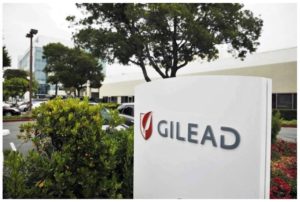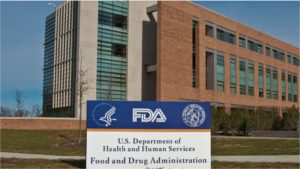- India’s drug regulator allows concurrent applications for genetic-related trials (fiercepharma.com)
Applications for clinical trials on genetic candidates in India can be sent at the same time to the Drug Controller General of India and the Review Committee on Genetic Manipulation under the Department of Biotechnology as part of an effort to streamline the process...It was decided in the meeting that the applicant may submit parallel application to RCGM and DCGI seeking approval to conduct (a) clinical trial...The RCGM is charged under law with reviewing the safety and ethics of recombinant DNA projects and activities in India that involve genetically engineered organisms, as well as setting guidelines, and previously had the first look at any applications...the change could shorten the path to clinical trial regulatory clearances for insulin or monoclonal antibody candidates...In July, the DCGI tweaked biosimilar approval guidelines and narrowed the scope to issue waivers required to run Phase III trials and rely on clinical references to biologic drugs not marketed yet in the country as part of an effort to get a better handle on data used to support such work.
- Facing Cancer Drug Shortage, U.S. Relies on Banned Chinese Plant (bloomberg.com)
Last September, U.S. regulators faced a dilemma: whether to allow importation of drug ingredients from a Chinese factory (Zhejiang Hisun Pharmaceutical Co.) with a history of poor quality controls, or face shortages of treatments for American cancer patients...Food and Drug Administration inspectors had uncovered what the agency later called “broad data manipulation” at the factory, located in Taizhou....Information about the potency and purity of some product batches had been deleted, making it difficult to investigate a significant increase in customer complaints...The agency issued an indefinite ban on the factory...one of China’s leading exporters of pharmaceuticals products. Yet to avoid possible shortages of drugs, the FDA allowed the plant continue exporting about 15 ingredients for use in finished drugs in the U.S., including nine key cancer medicine components. Hisun says that it takes quality seriously and has complied with requirements.
- FDA approves a Gilead pill that is first to treat all forms of hepatitis C (statnews.com)
Gilead Sciences won regulatory approval...to sell a new hepatitis C combination drug, which can combat all six strains of the disease, and priced it below its older treatments...Epclusa, combines the older Sovaldi (sofosbuvir)medication with the newer velpatasvir, and costs $74,760 for a 12-week course of treatment, although that’s before any rebates are offered to payers. This is less than the list prices for both Sovaldi and Harvoni, another Gilead hepatitis C treatment...Gilead has argued its treatments are more affordable than paying for liver transplants, cancer, and hospitalizations. To what extent the newest drug will cause payers concern is unclear. Epclusa will cost roughly half of the most commonly used treatment regimen for patients with Genotype 3 of the disease...(which)...is...the most difficult to treat and one of the reasons Epclusa was granted priority review by the FDA...One consumer advocate charged the pricing for the new drug was out of line...Gilead still doesn’t get it — their pricing is outrageous. Once again, Gilead has shown that it is more concerned with protecting its profits rather than making its drugs available to all Americans...
- Dr Aimee Tharaldson Expects the Biosimilar Approval Process to Pick Up Speed (ajmc.com)
The process for approving biosimilars has been moving slowly, but Aimee Tharaldson, PharmD, senior clinical consultant of emerging therapies at Express Scripts, foresees them as having the potential to lower costs for the industry and hopes the approval process will pick up speed.
- Drugmakers Split on Whether to Include Interchangeability Statement in Biosimilar Labels (raps.org)
Drug, biologic and biosimilar companies’ comments on Food and Drug Administration draft guidance on biosimilar labeling reveals a major split between those who do and do not want a statement on a biosimilar’s interchangeability status on each new product's label...FDA has still yet to release its guidance on what interchangeability means, and as FDA has not found any biosimilar to be interchangeable with its reference product…
- Amgen says it...believes a biosimilar label should include a summary of the clinical data, including immunogenicity data, used to demonstrate biosimilarity or interchangeability…
- Pfizer said...biosimilars should not be labeled "as though they were small molecule generic drugs" and that it "recommends that biosimilar labeling include a statement reflecting whether interchangeability has been assessed."
- Merck & Co...says "that a single blanket approach applicable to all biosimilar products is not appropriate, and may cause unnecessary confusion among stakeholders."...recommends that rather than using such blanket statements, FDA take a risk-based approach for each biosimilar…
- Boehringer Ingelheim says that it "does not agree that a biosimilar label needs to include a ‘biosimilarity statement,’...Such information is not ‘essential scientific information needed by health care practitioners for the safe and effective use of a drug.’
- Sandoz...says... "It is self-evident that the very act of highlighting the indications that are extrapolated is being proposed by some groups in order to raise doubts as to the safety and efficacy of the biosimilar for those indications, and perhaps to also imply inferiority of biosimilars across the board.
- To avoid shortages, FDA allows imports from 8 drug plants banned for quality shortfalls (fiercepharma.com)
With the vast majority of drugs and drug ingredients being manufactured outside the U.S., the FDA has had to step up its international oversight and often ban products from plants that don’t meet its standards. But the FDA also has found itself increasingly having to walk a tightrope between drug safety and drug availability...Because of the nature of the business, with companies in China or India often being a primary source of essential drugs, the FDA sometimes must exempt products and allow imports from plants that it believes have a poor record. Since 2013 the FDA has allowed 8 plants whose products are otherwise banned from the U.S. to go ahead and import some drugs or ingredients to avoid shortages, according to FDA Import Alert records.
- AstraZeneca sues FDA to prevent generic versions of Crestor (statnews.com)
Drug makers generally don’t complain when regulators widen the market for their medicines. But AstraZeneca filed a lawsuit...claiming the Food and Drug Administration is on the verge of illegally broadening the indication for its best-selling Crestor cholesterol pill, and the move would unfairly allow generic competition...The argument, which the company also made late last month in a citizen’s petition, hinges on the interpretation of federal law governing product labeling. Depending upon the outcome, AstraZeneca may either maintain a monopoly on Crestor for another seven years or face lower-cost rivals to a key revenue stream when the Crestor patent expires on July 8...the drug maker won FDA approval to sell Crestor to treat children with a rare genetic disorder called homozygous familial hypercholesterolemia...Under the Orphan Drug Act, the company was awarded an additional seven years of marketing exclusivity for Crestor, but only for treating this particular rare...disease...Several generic companies are lined up to sell a version of Crestor. AstraZeneca argues that a generic must include all pediatric labeling information approved for the corresponding brand-name drug. The company filed its lawsuit over concerns that the FDA will, instead, rely on a decision it made last year allowing generic companies to exclude certain information, so long as a safety risk is not created...AstraZeneca...believes federal law entitles the company to an additional exclusivity period of seven years for Crestor in the US...the American Journal of Clinical Oncology, a team of researchers argued that drug makers are exploiting loopholes in the Orphan Drug Act that allow them to widen the market for such drugs and distorting the original purpose of the law.
- EU regulators say China’s Jinan Jinda still missing manufacturing mark (fiercepharma.com)
When EU regulators last year came down on China’s Jinan Jinda Pharmaceutical for slipshod manufacturing work, the company brought in a U.S. consultant to get its Zhangqiu, Shandong, plant in order. But a recent follow-up found that Jinan Jinda continues to ship its antibiotic to some European customers even though its improvement efforts fall short of what they need to be...the European Directorate for the Quality of Medicines said it has been recommended that Jinan Jinda's nitrofurantoin antibiotic be banned from the EU and that the plant's certificate of compliance be suspended, or even "voided."...The investigators reported that there were critical deficiencies in the way the plant handled raw data safety, control and out-of-specification reviews. There were major deficiencies in training, change control, quality assessment, process and cleaning validations.
- European regulator recommends suspending numerous drugs over clinical trial problems (statnews.com)
The European Medicines Agency...recommended suspending the sale of dozens of generic medicines — many of which are sold by Novartis and Teva Pharmaceuticals — over concerns about "flawed" studies that were conducted by an Indian clinical research organization...The move comes three months after the US Food and Drug Administration alerted an untold number of drug makers of problems at the Semler Research Center...in Bangalore. An inspection...found "significant instances of misconduct and violations of federal regulations, including the substitution and manipulation of study subject samples."...the World Health Organization had issued a notice to Semler for the same reasons...regulators in each EU country will have to determine the extent to which specific medicines that were tested by Semler are critically needed before proceeding with suspensions. The EMA noted there is no evidence, to date, that any patients were harmed or that any of the drugs were not effective.
- Brexit spells upheaval for EU and UK drug regulation (reuters.com)
Britain's vote to leave the European Union spells regulatory uncertainty for drug companies, with the London-based European Medicines Agency, which approves treatments for all EU countries, expected to have to relocate...The association of Germany's pharmaceuticals industry said on Friday that Europe's equivalent of the U.S. Food and Drug Administration would need to move to a city within the EU...EMA...said it was premature to comment on its future...It is too early to foresee the implications of this decision and at this stage we are waiting for further guidance from the European Commission...Drug companies and healthcare officials in Sweden, Denmark, Italy and Germany have all expressed interest in hosting the EMA instead of London, since firms in these countries are keen to be located close to the region's...The pharmaceuticals industry employs more than 70,000 people in the UK and accounts for 25 percent of all business research and development spending in the country...Many scientists are concerned that funding for academic research, which has been well supported by the EU in recent decades, will now be jeopardized, along with important UK-European research collaborations...










